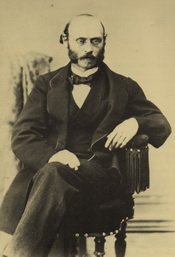(1826-1917)
Czech composer and violinist Ludwig Minkus wrote several hugely popular ballet scores, many of which are still widely performed today, including Don Quixote and La Bayadère. He was born in Vienna. His first work in ballet was assisting Edouard Deldevez on Paquita in Paris, 1846. In the early 1850s Minkus travelled to Russia, where he would spend the rest of his life. In 1862 he became leader and conductor of the Bolshoi Orchestra and in 1866 joined the newly created Moscow Conservatory as a violin professor. His first great success as a composer came with his score for Marius Petipa’s Don Quixote (1869) at the Bolshoi. In 1870 he was appointed official composer of ballet music to the Imperial Theatres in St Petersburg and went on to have a rich creative relationship with Petipa, with whom his ballets included La Bayadère (1877) and Roxana (1878). Minkus retired in 1886 but was to have a last triumph with Mlada, composed in 1879 but first performed in the 1896/7 season. Minkus was in many ways the archetypal composer of mid-19th-century ballet.
Czech composer and violinist Ludwig Minkus wrote several hugely popular ballet scores, many of which are still widely performed today, including Don Quixote and La Bayadère. He was born in Vienna. His first work in ballet was assisting Edouard Deldevez on Paquita in Paris, 1846. In the early 1850s Minkus travelled to Russia, where he would spend the rest of his life. In 1862 he became leader and conductor of the Bolshoi Orchestra and in 1866 joined the newly created Moscow Conservatory as a violin professor. His first great success as a composer came with his score for Marius Petipa’s Don Quixote (1869) at the Bolshoi. In 1870 he was appointed official composer of ballet music to the Imperial Theatres in St Petersburg and went on to have a rich creative relationship with Petipa, with whom his ballets included La Bayadère (1877) and Roxana (1878). Minkus retired in 1886 but was to have a last triumph with Mlada, composed in 1879 but first performed in the 1896/7 season. Minkus was in many ways the archetypal composer of mid-19th-century ballet.
